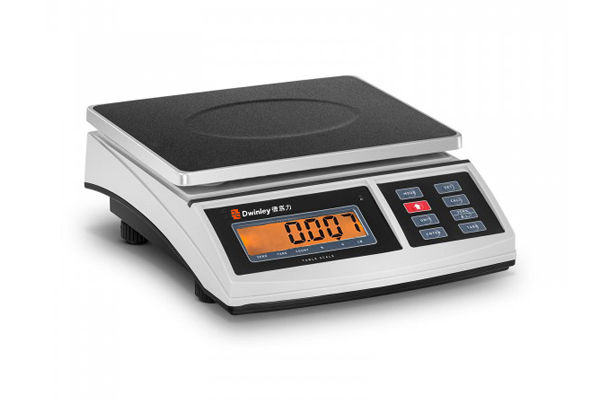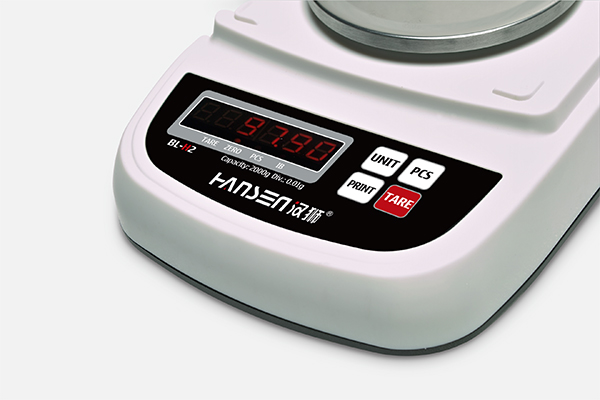What Is a Digital Weighing Scale?
Definition and basic principle
A digital scale measures weight using electronic sensors. These sensors convert the force from an object into an electrical signal. The scale then displays the result on a digital screen.
Digital scales use microchips to process the signal. This process allows for quick and accurate weighing. Many digital scales can measure small changes in weight, making them useful for precise tasks.
People use digital scales in many settings. They help in laboratories, kitchens, and factories. Digital scales provide reliable weighing results every time.
Difference between digital and mechanical scales
Digital scales and mechanical scales work in different ways. Mechanical scales use springs or levers to show weight on a dial. Digital scales use sensors and electronics to display weight on a screen.
Digital scales offer more features than mechanical models. Many digital scales include functions like unit conversion, counting, and data storage. These features make digital scales more versatile for weighing tasks.
Comparison Table
| Feature | Digital Scales | Mechanical Scales |
|---|---|---|
| Accuracy | High | Moderate |
| Display | Digital screen | Analog dial |
| Extra Functions | Yes | No |
| Ease of Use | Simple | Basic |
Most buyers prefer digital scales for their accuracy and extra features. Digital scales also save time during weighing. For these reasons, digital scales have become the top choice for many users.
Types of Digital Weighing Scales
Industrial Scales
Industrial weighing scales handle large and heavy items. These digital scales support factories and warehouses. Workers use them for bulk weighing and shipping.
Industrial scales have strong platforms. They offer high weight capacity and durable construction. Many models include smart weighing scale features for data tracking.
Laboratory Scales
Laboratory digital scales measure tiny amounts with great accuracy. Scientists and technicians rely on these high-quality scales for experiments. The best scales for accurate weight in labs have advanced sensors.
Laboratory weighing scales often include calibration options. They provide precise readings for chemicals and samples. Many smart weighing scale models in labs store data for analysis.
Retail/Commercial Scales
Retail weighing scales help stores weigh products for sale. These digital scales often calculate prices based on weight. Many connect to point-of-sale systems for fast transactions.
Retail digital scales feature clear displays. They support unit conversion and counting functions. Some smart weighing scale models offer Wi-Fi for easy data sharing.
Household Scales
Household weighing scales are designed for personal use. People use these digital scales to track health and measure food. The best smart weighing scale for homes offers easy setup and clear readings.
Many household smart weighing scale models include Bluetooth. Users can sync data with mobile apps. Ultra Slim Digital Scale is popular for its minimalist design and simple weighing.
| Scale Type | Capacity | Precision | Connectivity | Best Use Case |
|---|---|---|---|---|
| Industrial | Very High | Moderate | USB, Wi-Fi | Bulk weighing |
| Laboratory | Low | Very High | USB, Bluetooth | Scientific weighing |
| Retail | Medium | High | POS, Wi-Fi | Price calculation |
| Household | Low | High | Bluetooth, Wi-Fi | Personal health |

Key Features to Look For
Accuracy and precision
Buyers should always check if a digital weighing scale provides accurate readings. High precision ensures users get accurate measurements for every weighing task. Accurate results help people trust the scale for daily or professional use.
Weight capacity and platform size.
The weight capacity of the scale determines how much it can weigh at once. A larger platform size supports bigger items and makes weighing easier. Always match the weight capacity of the scale to the items you plan to weigh.
Display type (LCD, backlit, touchscreen).
A clear display helps users see accurate readings quickly. Many digital weighing scales use LCD screens, backlit displays, or touchscreens for better visibility. Good display options make weighing more convenient in different lighting conditions.
Counting function for small parts.
Some digital weighing scales offer a counting function. This feature helps users count small items during weighing, such as screws or beads. It saves time and improves accuracy for tasks that need precise quantities.
Connectivity options (USB, Bluetooth, Wi-Fi).
Modern digital weighing scales often include connectivity options. USB, Bluetooth, and wifi allow users to transfer weighing data to computers or mobile devices. Wifi enabled weighing scales make it easy to track and store accurate readings for future reference.
How to Choose a Weight Scale
Assess purpose and application
People must identify the main reason for buying a weighing scale. Some need a scale for personal health, while others require it for industrial or laboratory weighing. The purpose determines which features matter most.
A person who wants body composition analysis should select a scale with advanced sensors. Industrial users need a scale with high capacity and durability. Each application requires different weighing functions.
Consider accuracy, capacity, and platform size.
Accuracy plays a key role in weighing tasks. Scales with high precision give reliable results. Capacity tells users the maximum weight the scale can handle.
Platform size affects what items fit on the scale. A larger platform suits bulky objects. Small platforms work best for compact items or food weighing.
| Feature | Why It Matters |
|---|---|
| Accuracy | Ensures correct weighing |
| Capacity | Matches item weight |
| Platform Size | Fits item dimensions |
Buyers should match these features to their weighing goals. This step prevents mistakes and improves satisfaction.
Compare brands and warranty options.
Different brands offer unique weighing technologies. Some brands focus on durability, while others provide smart features. Warranty protects buyers from defects and problems.
A longer warranty gives peace of mind. Reliable brands often include better customer support. Comparing brands and warranty options helps buyers make informed decisions.
Check additional features
Modern scales offer extra weighing functions. Counting features help with small parts. Connectivity options like Bluetooth or Wi-Fi allow data transfer.
Software integration supports record keeping and analysis. These features add value for users who need more than basic weighing. People should consider which extras match their needs.
- Counting function: Useful for inventory or small items.
- Connectivity: Enables data sharing and tracking.
- Software: Helps with body composition analysis and reports.
Benefits of Using Digital Weighing Scales
Faster and more accurate measurements.
Digital weighing scales deliver quick results. Users see precise measurement values in seconds. Many people rely on these devices for weight loss tracking and daily weighing tasks.
Easy readability and user-friendly interface.
Most digital bathroom scales feature large screens. The display shows clear numbers, making weighing simple for everyone. Smart bathroom scales often include touch controls for easy operation.
A user-friendly interface reduces confusion. People can check their weight loss progress without difficulty. The design of these scales encourages regular weighing and measurement.
Multi-functional: unit conversion, counting, tare function.
Digital weighing scales offer more than basic measurement. Many models support unit conversion, allowing users to switch between pounds and kilograms. The counting function helps with small items, such as beads or screws.
The tare function lets users subtract container weight. Smart body fat scale devices often include these features for advanced analysis. Multi-functional weighing supports various needs, from cooking to weight loss monitoring.
- Unit conversion: Switch between measurement units.
- Counting: Track small items during weighing.
- Tare: Remove container weight for accurate measurement.
Data storage for records.
Many smart bathroom scales and smart body fat scale models store data. Users can review past weighing results and measurement trends. Data storage helps with weight loss analysis and progress tracking.
| Feature | Benefit |
|---|---|
| Data Storage | Tracks progress |
| Analysis | Reveals trends |
| Smart Features | Supports weight loss |
Digital bathroom scales with data storage make weighing more meaningful. Users gain insights from regular measurement and analysis.

Maintenance and Calibration Tips
Regular cleaning and calibration
Digital weighing scales need regular cleaning to keep them accurate. Dust and debris can affect the sensors and lead to wrong weighing results. Users should follow the manufacturer’s instructions for calibration to maintain precision.
Avoiding overloads.
Overloading a digital weighing scale can damage its sensors. Each scale has a maximum weight limit that users must respect. Exceeding this limit may cause errors in weighing or even break the device.
- Always check the weight capacity before placing items on the scale.
- Remove heavy objects immediately if the scale shows an overload warning.
- Protect the weighing platform from sudden impacts.
Proper storage and battery care.
Proper storage helps extend the life of a digital weighing scale. Store the scale in a dry place to prevent moisture damage. Battery care also matters for consistent weighing performance.
| Storage Tip | Benefit |
|---|---|
| Keep in dry area | Prevents sensor damage |
| Remove batteries | Avoids leakage |
| Use protective cover | Shields weighing surface |
Conclusion
Digital weighing scales have become the preferred choice across industries, laboratories, retail, and households. They provide fast, accurate, and easy-to-read results while offering extra functions like unit conversion, counting, and data storage.
Compared with mechanical models, digital scales save time and deliver higher precision. Choosing the right scale depends on purpose, accuracy, capacity, and platform size, with modern options also providing smart connectivity for data tracking.
With proper care and calibration, a digital weighing scale delivers reliable performance and long service life, making it a practical investment for both professional and personal use.

